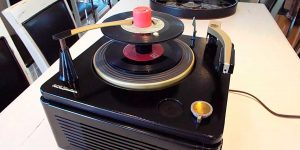Discovering that your cherished vinyl collection doesn’t sound quite right can be a frustrating experience. If you’ve noticed your record player playing too fast, you’re certainly not the only one encountering this problem. From the unfamiliar high-pitched notes to the hastened pace, these are tell-tale signs that need your attention. Thankfully, this issue is generally fixable, and I’m here to guide you through the process.
In this article, I delve into the various reasons why you might face record player speed issues, offering detailed solutions to troubleshoot them. Moreover, I’ll share insightful tips to ensure that your TT operates seamlessly for many years to come.
Reasons for playing too fast
Incorrect belt tension
Incorrect belt tension stands as a prevalent cause of turntables spinning too fast. A slack belt fails to regulate the platter’s rotation adequately, often leading to an accelerated speed during playback. This issue is generally witnessed in turntables where the belt has lost its elasticity over time, compromising the synchronization between the motor and the platter.
Dirty or damaged stylus
A grimy or impaired stylus not only affects the sonic fidelity but can also induce a quicker rotational speed of the records. Accumulated debris on the stylus might change its interaction with the record’s grooves, while any physical damage can misalign it, facilitating a faster spin during the listening session.
Warped records
Warped records, often resulting from improper storage or exposure to fluctuating temperatures, can disrupt the turntable’s speed accuracy, potentially inducing a faster playback. This deformation in the vinyl not only alters the speed but can also significantly impact the audio fidelity during playback.
Wrong speed selection

Turntables often come with a speed selector, offering options like 33⅓, 45, or 78 RPM. It’s crucial to match the speed setting to the intended RPM of your vinyl record. A simple oversight, such as setting a 45 RPM record to play at 33⅓ RPM, can lead to your record player playing too fast or too slow, distorting the listening experience.
Incorrect turntable speed calibration
Many turntables are equipped with a speed calibration tool that aids in regulating the rotational velocity of the platter. If you notice an over-accelerated vinyl playback, it might be due to a glitch or incorrect adjustment in this function.
Player parts are too dry
Over time, the components within a turntable can become excessively dry, particularly if the unit has not been in use for an extended period. This dryness can lead to increased friction and resistance, potentially causing the record to rotate at a faster-than-normal pace, thereby altering the intended sound quality.
The deformed center hole on record
A warped or misshapen center hole on a vinyl record can interfere with the equilibrium of the spinning process, leading to high-speed record rotation. This phenomenon is typically observed in older, frequently played records where wear and tear gradually alter the record’s physical characteristics.
How to check if your player is playing too fast
To ensure the optimal experience when listening to your cherished vinyl records, it’s important to ascertain that your turntable is running at the prescribed speed. Here are some methods to diagnose an over-speeding issue:
- Platter speed examination: many turntables come equipped with a built-in speedometer, providing real-time data on the platter’s rotation. Ideally, the rotational speed should deviate no more than +/-2% from the standard rate. A noticeable increase signifies a speed inconsistency.
- Auditory analysis: the human ear is a great judge. An over-speeding record tends to produce a “high-pitched” or “tinny” sound quality, detracting from the intended audio experience.
- Pitch evaluation: utilizing a tuner can be an instrumental method. By analyzing the pitch of the music, especially familiar tunes, discrepancies can become apparent. An unusually high pitch often indicates an increased rotation speed.
- Digital assistance: several smartphone applications cater specifically to vinyl enthusiasts, assisting in gauging turntable speed. For instance, the “Vinyl Speed Check” app offers a user-friendly interface to determine the accuracy of your turntable’s rotations.
How to fix the speed on my record player?
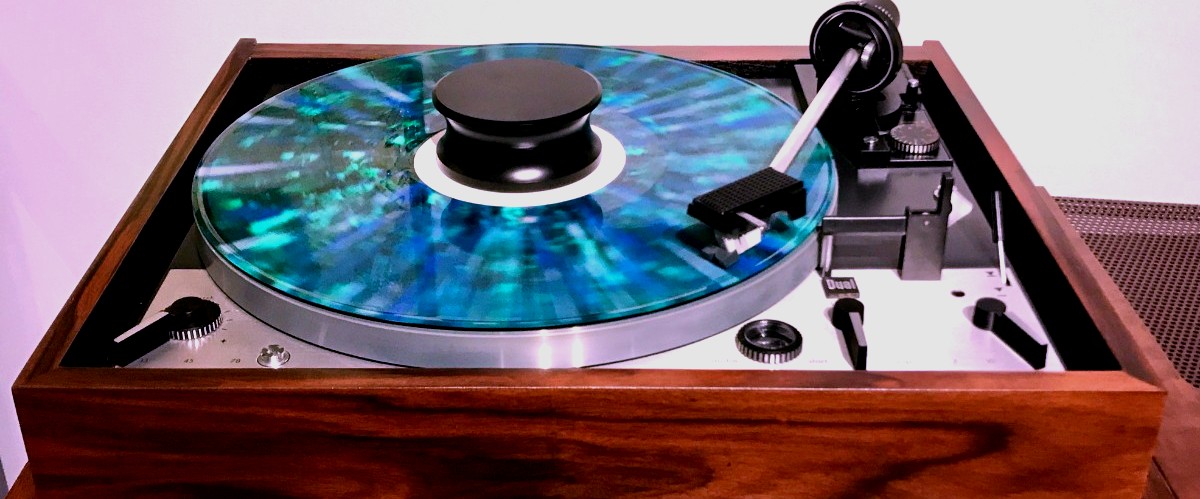
Replace the record
At times, the issue of increased turntable speed lies with the vinyl record itself. For example, a distorted or widened center hole can disrupt the stable rotation, leading to a faster playback pace. In such instances, it is advisable to substitute the problematic record with a new or well-maintained one to ascertain if the issue is rectified.
Fix belt
An essential step to slow down a record player experiencing hasty playback is addressing the belt issues. A worn or loose belt can often lead to speed inconsistencies. Inspecting and adjusting or replacing the belt accordingly can be a crucial fix to restore the harmonious melodies of your vinyl collection.
Check lubrication
To maintain optimal performance, regularly lubricate the moving components of your turntable with a light, specialized oil. Suitable options include WD-40 or 3-in-1 oil, which effectively prevents friction and ensures the smooth operation of the turntable, preserving the authentic auditory experience of your vinyl records.
Check speed switch
For precise playback, it is essential to routinely monitor the position of the speed switch. Gently align it to the middle position to ensure that the turntable operates at the correct pace, guaranteeing an immersive and true-to-original vinyl listening experience.
Adjust the speed of the platter
Utilize the speed calibration feature present in many turntables to fine-tune the rotational velocity of the platter. Refer to your device’s manual for guidance on manipulating the respective knob or switch to achieve the desired tempo during vinyl playback.
Brake Adjustment
If your turntable has a brake, you can try adjusting it. The brake is responsible for stopping the platter from spinning. If the brake is not adjusted properly, it can cause the records to play too fast.
Check the owner’s manual
If you’re still having trouble, consult your turntable’s owner’s manual – it may have specific instructions on how to fix the problem.
Tips on how to keep your record player running smoothly
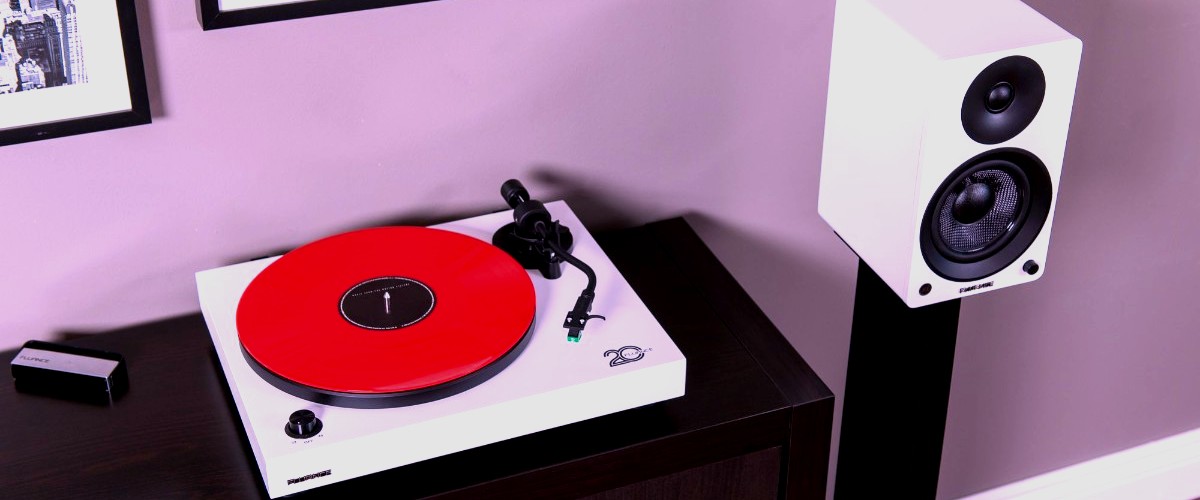
Here are a few tips on how to keep your record player running smoothly:
- Check the belt tension regularly. Make sure to check the belt tension every few months to ensure that it is not too loose or too tight.
- Store records properly. Records should be stored upright in a cool, dry place. Avoid exposing them to extreme temperatures or sunlight.
- Handle records carefully. Always hold your precious LPs by edges and avoid touching the surface.
- Clean records regularly. Records should be cleaned before each use. Use a soft cloth or record brush to remove dust and debris.
- Use a dust cover. To ensure smooth operation, maintain the cleanliness of your record player. Utilize a dust cover to shield it from dust and dirt accumulation when not in use.
- Don’t overuse it. Try to avoid playing records for more than an hour at a time. Overusing your record player can cause wear and tear on the parts.
- Check for damage regularly. Inspect your turntable regularly for any damage. If you notice any cracks or breaks, get them repaired as soon as possible.
- Don’t force it. If something doesn’t seem to be working right, don’t force it. This can cause more damage and make the problem worse.
- Get it serviced regularly. Have your record player serviced by a professional every few years to keep it running smoothly.

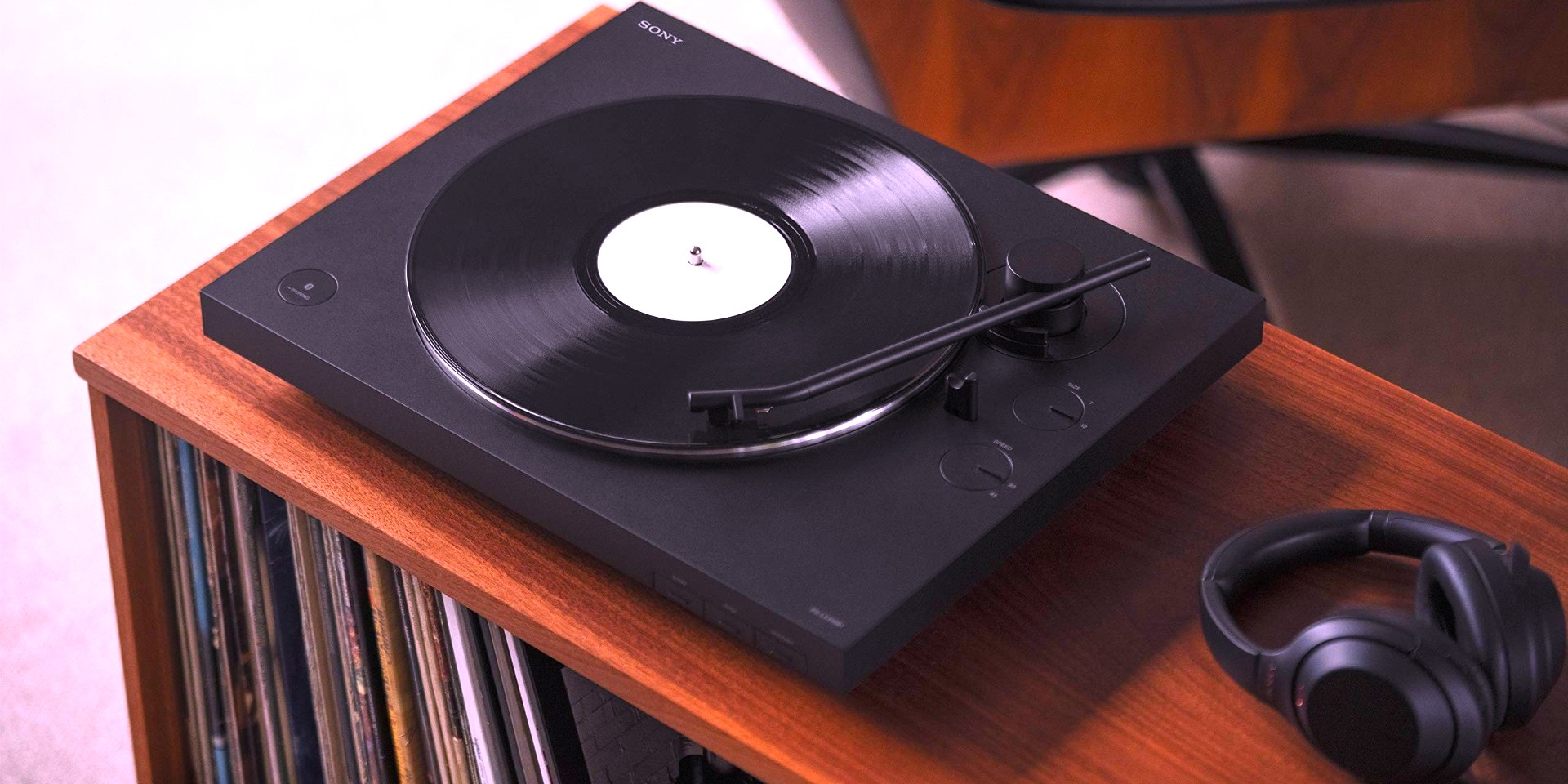



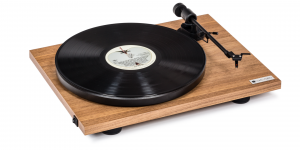


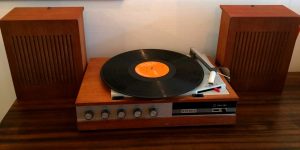


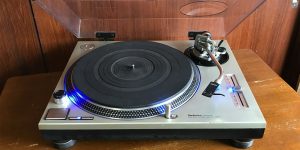
![Connect a Turntable to Your Wireless Bluetooth Speakers [Easy Guide]](https://www.vinylrecordday.org/wp-content/uploads/2021/12/tuntable-and-sonos-speaker-300x150.jpg)
